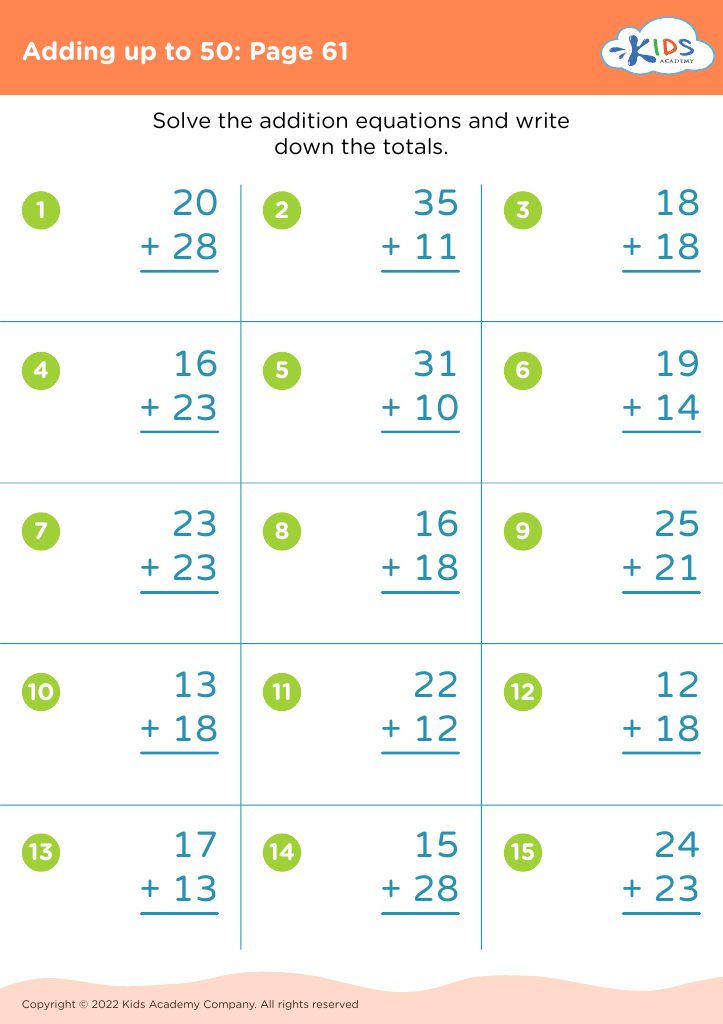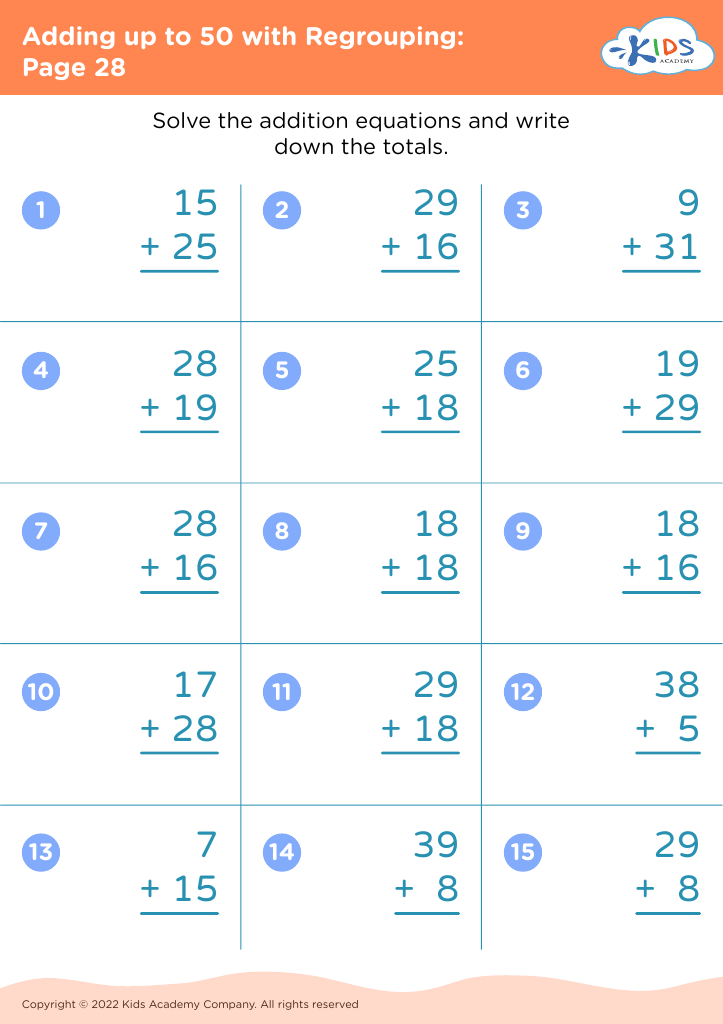Addition skills Adding up to 50 Worksheets for 8-Year-Olds
7 filtered results
-
From - To
Enhance your child's math skills with our comprehensive "Addition Skills: Adding Up to 50 Worksheets" designed specifically for 8-year-olds. These engaging worksheets provide a fun and interactive way to practice addition, helping children gain confidence and mastery as they work through various problems. Our resources encourage critical thinking while promoting number recognition and fluency in basic arithmetic. Each worksheet is tailored to challenge young learners, ensuring steady progress as they tackle different levels of difficulty. Perfect for classroom use or at-home practice, our adding up to 50 worksheets are an essential tool for building foundational math skills in early learners.
Addition skills up to 50 are crucial for 8-year-olds as they form the foundation for essential mathematical competencies needed in everyday life and higher-level math. Mastery of addition helps children develop computational fluency, which allows them to solve problems efficiently and with confidence. This skill is pivotal for enabling them to tackle more complex concepts, such as subtraction, multiplication, and division, as they progress in their education.
Additionally, being proficient in addition promotes logical reasoning and critical thinking. Children who can quickly and accurately add numbers are better equipped to understand, analyze, and tackle mathematical problems. Such skills also support their ability to engage in activities involving money, time management, and measurement in real-life situations.
From a social perspective, strong addition skills help build self-esteem and encourage a positive attitude toward math. When children feel confident in their abilities, they are more likely to participate actively in math-related discussions and group activities. Thus, parents and teachers should prioritize the development of these skills to foster a solid mathematical foundation, enhance cognitive abilities, and prepare children for academic success in various subjects. This focus ultimately contributes to a well-rounded educational experience.



















